Using data science to assure trust and integrity in research
- May 11, 2022
- By: Sally Crocker
- Our People
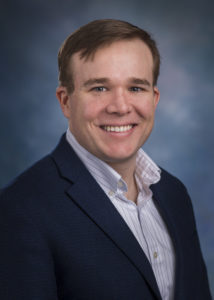 “Trust” is a powerful word. In research, the reliability of data and the methods used to analyze that data can change people’s lives and have a profound impact on the world.
“Trust” is a powerful word. In research, the reliability of data and the methods used to analyze that data can change people’s lives and have a profound impact on the world.
Research scientists, especially in public health, want to know that the information they report and the conclusions they offer are based on the most applicable data available, carefully studied toward specific objectives. The information they collect must be reliable and their analytic methods need to be appropriate, sound and generalizable to broader populations.
That’s where data scientists like Justin Luningham, Ph.D., assistant professor of biostatistics at the HSC School of Public Health (SPH), come in.
Dr. Luningham, who joined HSC in fall 2021, has worked on projects studying the effects of racial disparities on women’s cancer outcomes, the well-being of adolescents’ mental health over time, triggers influencing substance use among homeless populations and studies focused on genetic epidemiology, involving the ways that genes and environmental factors influence health among individuals and groups.
In the HSC graduate courses he leads, Dr. Luningham teaches students how to think critically about data and the best ways to address particular research questions.
“Teaching biostatistics involves so much more than using software to perform an analysis,” he said. “It’s showing students that how we plan and conduct quantitative analysis gives us the confidence in our findings to make the best public health decisions going forward.”
The local boy who grew up in Arlington has returned to the Dallas-Fort Worth area after building his credentials in quantitative psychology, genetic epidemiology and applied and computational mathematics and statistics. Both his master’s and Ph.D. degrees were completed at the University of Notre Dame. He has taught there, as well at Georgia State School of Public Health, and has also studied outside the U.S., in Amsterdam.
“It’s nice to be back home,” Dr. Luningham said. “My dad has worked in Fort Worth since I was young, and both parents, as well as my sister, still live in this area. My wife and I welcomed our first child (son James) last year, and it’s great to be so close to family again.
“This is one of the reasons I was drawn to HSC, to get back to my community and be a part of helping others through public health right here in Tarrant County.”
There is much to like about HSC, Dr. Luningham said.
“I’m enjoying working with my colleagues, everyone I’ve interacted with so far,” he explained.
“The SPH has a small but growing faculty, including many subject-matter experts and early career faculty members, giving all of us a great opportunity to build connections with each other and find common areas for research. It’s exciting to be a part of that.”
Being able to mentor students toward their public health careers is also very important to the professor.
“Our students are interested in pursuing highly collaborative roles where they can use data to change people’s lives for the better,” he said.
“Having that experience in how to frame and analyze often-complicated, large data sets, being able to distill the information and report on it and then move the results into actionable, real-life recommendations will help them draw the best conclusions and provide sound advice in their research studies and public health practice.”
Keeping the data science side of research as solid as possible, Dr. Luningham said, makes the path forward clearer for public health scientists and furthers the mission of HSC and the School of Public Health in building healthier communities and a healthier world.
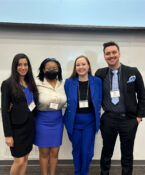
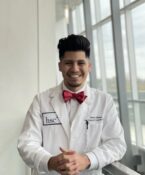
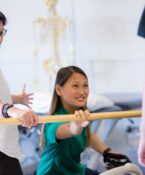
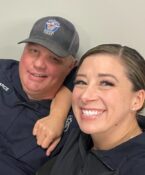

Social media